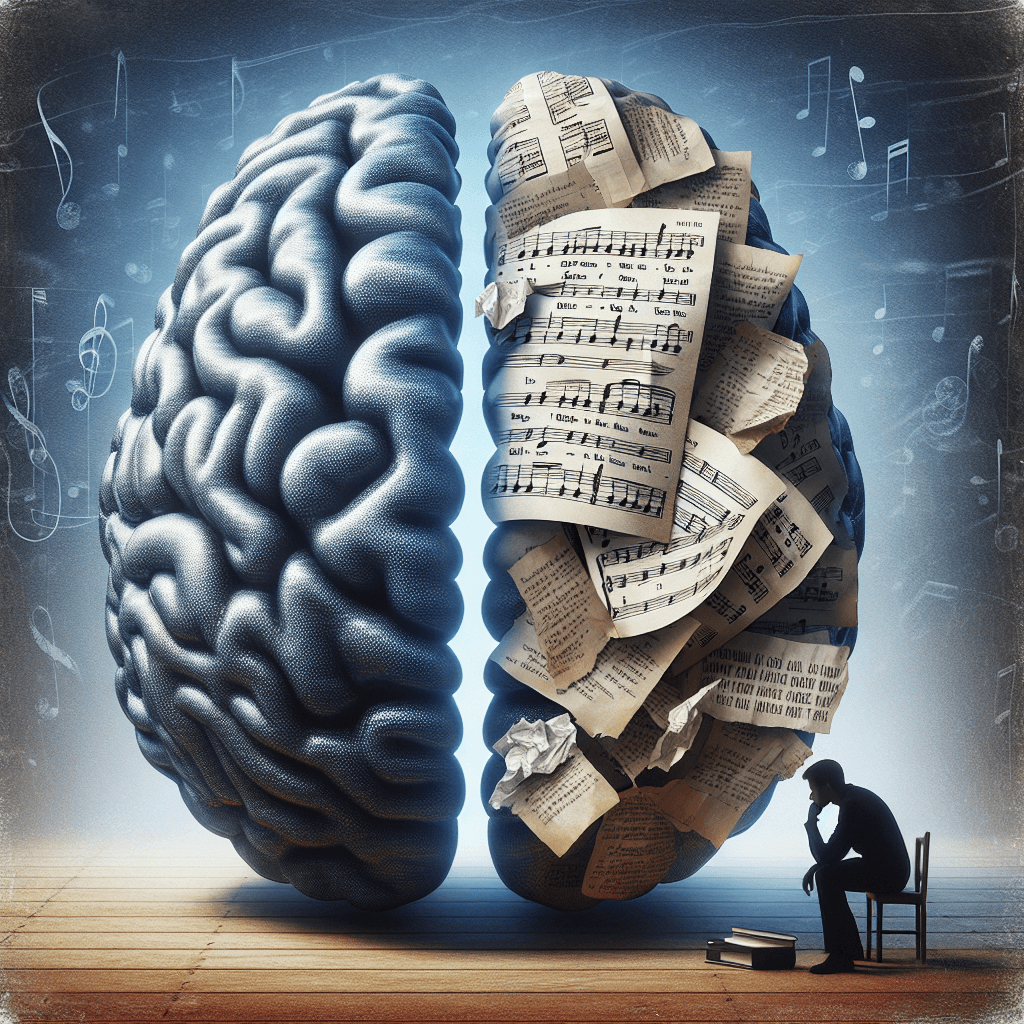Why can your brain store thousands of song lyrics but struggles with a simple poem
Your brain is a flawless jukebox, effortlessly recalling thousands of songs, yet a simple poem can feel impossible to memorize. Discover the surprising neuroscience behind why melody is your memory's ultimate cheat code.


Too Long; Didn't Read
TLDR: Your brain uses music as a powerful memory aid. The melody, rhythm, and emotional connection of a song create hooks for the lyrics to stick to. Poems lack these musical cues and the massive repetition that drills songs into our heads.
The Musical Brain: Why You Can Your Brain Store Thousands of Song Lyrics But Struggles With a Simple Poem?
Have you ever found yourself flawlessly singing along to a song you haven't heard in a decade, yet you can't for the life of you remember the two-stanza poem you were supposed to memorize for a work presentation? You’re not alone. This common experience isn’t a sign of a failing memory; it's a fascinating window into how our brains are uniquely wired to process and store information. The seemingly magical ability of lyrics to stick in our minds while other text fades away is rooted in a powerful combination of neurology and psychology. This post will explore the key reasons why music acts as a super-scaffold for memory, making lyrics unforgettable while plain text remains frustratingly elusive.
The Power of a One-Two Punch: Melody and Rhythm
The most significant advantage lyrics have over poetry is their musical accompaniment. Music provides a rich, multi-layered structure that words alone simply cannot match. Think of it as a mental filing system.
- Melody: A melody attaches a unique auditory pattern to words. According to research in cognitive neuroscience, music and language are processed in interconnected areas of the brain. When you try to recall a lyric, you can use the tune as a powerful retrieval cue. If you forget a word, humming the melody can often bring it right back to the tip of your tongue. This creates two pathways to the memory (the words and the tune), doubling your chances of successful recall.
- Rhythm and Rhyme: Both songs and poems use rhythm, but in music, it’s far more pronounced and predictable. The beat and cadence create a framework that helps your brain anticipate the next word or phrase. This process is a form of "chunking," where the brain groups individual pieces of information into larger, more manageable units. The predictable structure of a verse or chorus makes it much easier for the brain to encode and retrieve as a single chunk.
The Emotional Superglue
Music has a direct line to our emotions, and emotion is one of the most powerful memory enhancers. When we listen to a song, it often triggers a strong emotional response, activating the amygdala—the brain's emotional processing center. This brain region works closely with the hippocampus, which is crucial for forming long-term memories.
When an experience is emotionally charged, the brain flags it as important and worth remembering, encoding it more deeply. A song might remind you of a first love, a summer vacation, or a difficult time you overcame. These associations link the lyrics to powerful episodic memories—memories of specific life events. A poem on a page rarely comes with this built-in emotional weight, making it feel more like an abstract piece of data to be memorized through rote effort.
The Magic of Effortless Repetition
How many times have you listened to your favorite song? Fifty? A hundred? Maybe more. The sheer volume of repetition is a massive factor in why lyrics become so deeply ingrained in our memory. The key here is that this repetition is almost always passive and enjoyable.
We hear songs on the radio, in stores, on our personal playlists, and at social events. We aren't actively trying to memorize them; the learning happens in the background. Psychologists refer to this as incidental learning. In contrast, memorizing a poem is typically an act of "effortful processing." It's a task you have to consciously work at, often with a specific goal in mind, like passing a test. This can feel like a chore, making the brain less receptive. Our brains are far more likely to retain information acquired through enjoyable, low-stakes repetition.
A Full-Brain, Multi-Sensory Experience
Finally, music provides a multi-sensory experience that a poem on a page cannot replicate. When you hear a song, you aren’t just processing words.
- You hear the instrumentation (auditory).
- You might picture the music video or album art (visual).
- You might tap your foot or dance along (motor).
- You might be singing it with friends (social).
Each of these elements creates a new neural pathway to the memory of the lyrics. When you want to recall the words, your brain has multiple routes it can take to find the information. A poem is primarily a linguistic task, engaging a much narrower set of neural networks.
Conclusion
The reason your brain is a lyrical library but a poetic sieve isn't a personal failing—it's a testament to the power of music as a learning tool. The potent combination of melody and rhythm, deep emotional connection, effortless repetition, and a multi-sensory experience creates the perfect recipe for long-term memory. Lyrics aren't just words; they are words woven into a rich tapestry of sound, feeling, and experience. So, the next time you need to memorize something important, try setting it to a simple tune. You might just unlock your brain’s hidden musical genius.


